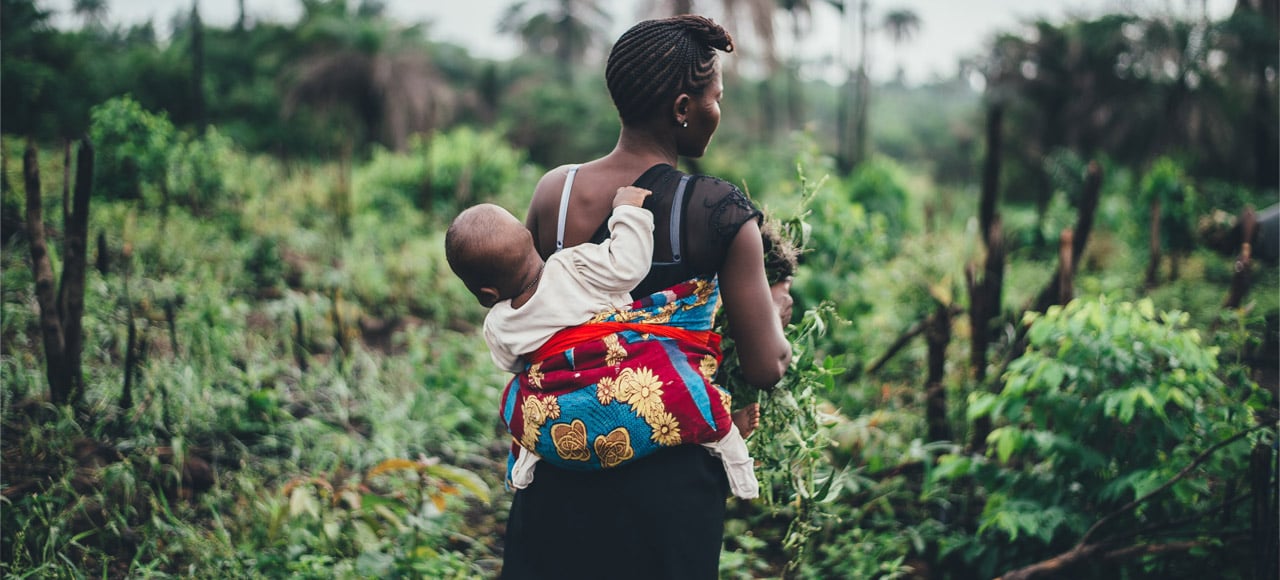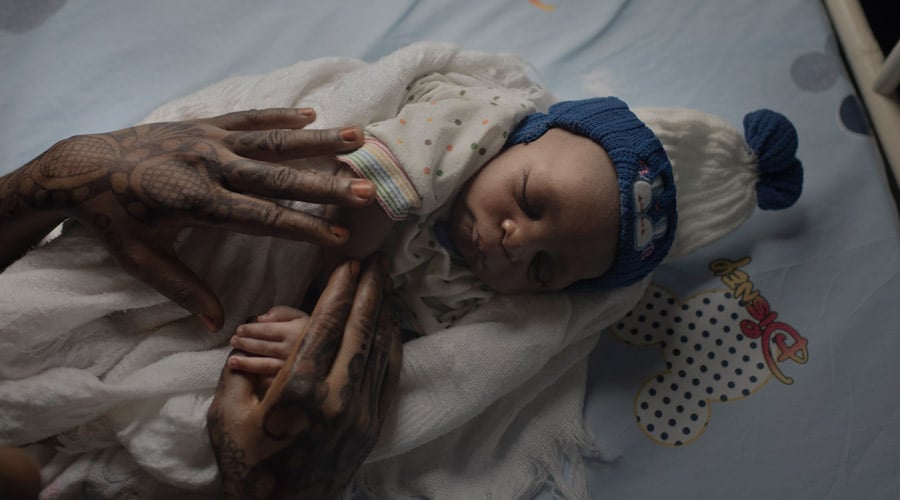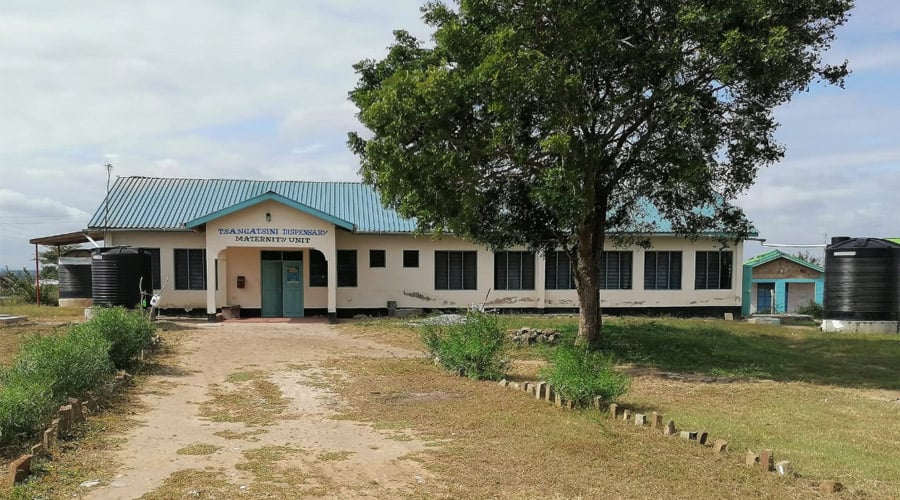CHAMNHA is a three-year inter-disciplinary research project funded by the Belmont Forum that will quantify the risks from heat on maternal and neonatal health, document behaviour and develop interventions to reduce the impact of current climate risks and future climate change. The consortium includes research partners in the UK, Burkina Faso, Kenya, South Africa, Sweden, Norway, and the US.
The CHAMNHA research programme has five research streams to develop evidence on the management of heatwaves and for adaptation in health systems in sub-Saharan Africa. The research will focus on the development of low-cost interventions to reduce the burden of heat-related conditions on maternal and newborn health.
Project rationale
Heatwaves are expected to increase in number and intensity in the coming years due to climate change. African countries are likely to be particularly affected by the health impacts of heatwaves.
The following videos were created by our colleagues from Institut de Recherche en Sciences de la Santé (IRSS), Burkina Faso, and from Aga Khan University, Kenya.
CHAMNHA - video by IRSS Team, Burkina Faso:
Climate Heat Maternal and Neonatal Health Africa (CHAMNHA) consortium/ Kenya:
Too Hot To Thrive, by Aga Khan University Team, Kenya:
Vision and activities
CHAMNHA will generate new knowledge on protecting the health of mothers and babies from extreme temperature. The CHAMNHA project will quantify the burden of disease resulting from heat stress during pregnancy and in the neonatal period; generate evidence on effective, acceptable and feasible heat interventions; and facilitate adaptation planning to improve preparedness and reduce the impacts of extreme heat on Maternal and Neonatal health (MNH) in sub-Saharan Africa.
The project has five work streams.
Collaborations
ENBEL (Enhancing Belmont Research Action to support EU policy making on climate change and health).
The CHAMNHA project is part of ENBEL which will help us engage with stakeholders and disseminate our results.
London School of Hygiene and Tropical Medicine, United Kingdom
- Lead Investigator and Consortium Co-Lead: Dr Sari Kovats,
- Prof Veronique Filippi
- Dr Shakoor Hajat
- Dr Cherie Part
University of Witwatersrand, South Africa
- Lead Investigator and Consortium Co-Lead: Prof Matthew Chersich. Email: mchersich@wrhi.ac.za
- Dr Fiona Scorgie. Email: fscorgie@wrhi.ac.za
Environment and Health Governance Centre, Africa International University, Kenya
- Lead Investigator: Dr Adelaide Lusambili
Institut de Recherche en Sciences de la Santé (IRSS), Burkina Faso
- Lead Investigator: Prof Seni Kouanda
- Dr Kadidiatou Kadio
Karolinska Institutet, Sweden
- Lead Investigator: Dr Nathalie Roos
- Petter Ljungman
- External collaborator: Massimo Stafoggia
- Jeroen de Bont
South African Medical Research Council, South Africa
- Lead Investigator: Dr Caradee Wright. Email: caradee.wright@mrc.ac.za
University of Leeds, United Kingdom
- Lead Investigator: Prof John Marsham
- Prof Cathryn Birch
- Dr Carla Reddington
University of Oslo, Norway
- Lead Investigator: Prof Britt Nakstad
- Terje Rootwelt
University of Washington, United States of America
- Lead Investigator: Dr Jeremy Hess
- Prof Kristie Ebi
-
Martha Oguna (based in Kenya)
- Epidemiological analyses
-
We are undertaking systematic reviews and secondary analyses of survey and health data to quantify the impact of high temperature on adverse maternal and newborn outcomes, and to investigate the factors that affect these risks.
We have three main research questions:
- What are the impacts of extreme hot weather on maternal, perinatal, and newborn health outcomes?
- Is there a threshold above which action should be taken to protect maternal and newborn health?
- Do certain maternal characteristics or comorbidities increase risk of adverse maternal outcomes during exposure to extreme heat?
Our initial secondary data analyses include:
- A ground-breaking analysis of the relationship between heat stress and preterm birth using longitudinal data from the Swedish Pregnancy Register, the Swedish National Patient Register, and Statistics Sweden, and geocoded data on temperature and air pollution. In this cohort study we will test different case definitions for heat stress using data available on temperature and investigate the short term, longer term and medium terms effects of heat stress on preterm births
- Using a data from a cohort of approximately 830 pregnant or postpartum women in Burkina Faso, an analysis of the relationship between extreme temperature and women’s activities patterns, maternal mental health, maternal functioning, hypertension and breastfeeding practices
- Using meteorological and medical data on 59000 deliveries from South Africa, an investigation of the effects of high temperature, for different time lags, on a broad range of health outcomes including duration of labour, maternal infections, eclampsia/pre-eclampsia, and newborn dehydration.
We are looking for new datasets and collaboration. Please contact us if you have a suitable dataset for this type of analysis.
Publications
Chersich MF, Pham MD, Areal A, Haghighi MM, Manyuchi A, Swift CP, Wernecke B, Robinson M, Hetem R, Boeckmann M, Hajat S; Climate Change and Heat-Health Study Group. BMJ. 2020; 371:m3811.
- Qualitative studies of heat and behaviour
-
In the first year of CHAMNHA, we will be carrying out parallel qualitative studies in Burkina Faso and Kenya to examine how exposure to extreme heat during pregnancy and in the postpartum is viewed by a range of stakeholders, and the extent to which they view it as a priority for intervention. Using a combination if individual in-depth interviews, key informant interviews, and focus group discussions, these studies will engage with pregnant and postpartum women, elderly female relatives, male partners, healthcare workers, government representatives and community leaders, among others. We will ask how women identify discomfort from heat in their neonates, understand their neonate’s fluid and nutritional needs, and formulate strategies to cool them down. We will also explore women’s own cooling behaviours and general resilience to heat stress.
In Burkina Faso, we are particularly interested to document how heat stress affects women’s utilisation of antenatal care and postnatal care, and how the health system copes with demand during periods of extreme heat, when power outages are more common. Using a co-design approach involving potential beneficiaries and local stakeholders, we will identify feasible and acceptable facility-based heat-health interventions to reduce the risk of heat stress for pregnant and postpartum women, including interventions to ease breastfeeding and the health of the neonates.
In Kenya, the co-design process will focus on identifying potential community-based interventions that may help to shore up resilience to heat stress for this population, such as the creation of cooler spaces in the community for pregnant women to use, and the use of existing Community Health Volunteers to monitor heat stress and disseminate heat ‘alerts’ to pregnant, postpartum women and neonates.
- Implementation and evaluation
-
Interventions will be developed through co-design with local stakeholders.
Intervention in Burking Faso will focus on the clinical settings. Interventions in Kenya will focus on dwellings and women giving birth at home.
- Climate services
-
Annual and seasonal temperatures are increasing across the African continent. We are analysing present-day extreme temperature events over sub-Saharan Africa and projecting their change through to 2050. We are linking changes in the climate to Maternal and Neonatal Health risks.
We are investigating which heat metrics are most relevant to capture health-related risks in sub-Saharan Africa. We are using a range of observational datasets and climate model projections to provide a range of plausible scenarios for future increases in temperature extremes.
Climate research in Africa
- AMMA-2050 (African Monsoon Multidisciplinary Analysis-2050)
- HyCRISTAL (Integrating Hydro-climate science into policy decisions for climate-resilient infrastructure and livelihoods in East Africa)
- IMPALA (Improving Model Processes for African Climate)
- GCRF African SWIFT (Science for Weather Information and Forecasting Techniques)
- Climate change adaptation planning
-
There are a range of intervention strategies to reduce the impact of heat risks and these need to be incorporated within national adaptation planning for climate change. We are undertaking research to understand how to improve decision-making on heat-health risks.











